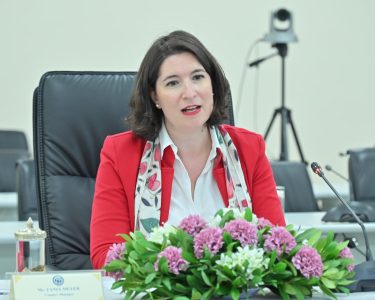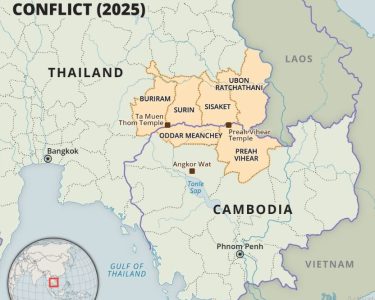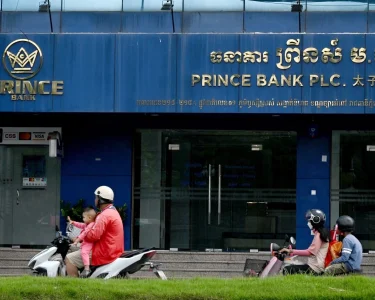Cambodia Investment Review
The Ministry of Environment (MOE) and the Global Green Growth Institute (GGGI) have launched the “Capacity Building and Accreditation Support of Direct Access Entity to Private Banks for On-Lending and/or Blending Fiduciary Functions” project. This initiative aims to improve access to climate finance in Cambodia by enhancing the capabilities of selected local banks.
The project targets three banks:
- Foreign Trade Bank of Cambodia (FTB)
- ACLEDA Bank Plc. (ACLEDA)
- Advanced Bank of Asia Limited (ABA)
These institutions will receive capacity-building support to mobilize climate finance effectively, implement climate-resilient initiatives, and support their accreditation applications to the Green Climate Fund (GCF) as Direct Access Entities (DAE). The project is funded by the GCF and will run for two years, with the goal of submitting an accreditation application from one of the banks during the implementation phase.
Enhance the Capacity of Local Financial Institutions
Cambodia faces significant challenges from climate change, with mitigation and adaptation costs outlined in its Nationally Determined Contribution (NDC) exceeding $5.8 billion and $2 billion, respectively. This project is part of a broader effort by MOE and GGGI to address the financial gap and enhance the country’s resilience to climate impacts.
H.E. Choup Paris, Secretary of State at the Ministry of Environment, highlighted the importance of the project. “This project represents the culmination of our persistent efforts and strategic planning. It is designed to navigate the intricacies of climate finance by enhancing capacity and promoting knowledge sharing. Our goal is to equip stakeholders—including financial institutions, government agencies, and the private sector—with the necessary tools to effectively mobilize climate finance and implement climate-resilient initiatives,” he said.

Ms. Shomi Kim, GGGI Cambodia Country Representative, emphasized GGGI’s commitment to supporting local financial institutions. “GGGI’s green investment initiatives aim to enhance the capacity of local financial institutions to access climate finance more effectively. This project will support candidate banks through the GCF accreditation process and assist them in identifying and developing climate projects that can attract financing from the Green Climate Fund, which has already committed $13 billion and has $22 billion in the pipeline globally,” she explained.
The project was introduced at a workshop led by MOE in collaboration with GGGI. The event included representatives from various sectors, including the Association of Banks in Cambodia, the Cambodia Microfinance Association, the microfinance and banking industries, and key government ministries such as the National Bank of Cambodia (NBC), the Securities and Exchange Regulator of Cambodia (SERC), and the Ministry of Economy and Finance of Cambodia (MEF).
Significant Step Towards Mobilizing Climate Finance in Cambodia
The GGGI, based in Seoul, is a treaty-based international, inter-governmental organization with 48 member states. It is dedicated to supporting and promoting strong, inclusive, and sustainable economic growth in developing countries and emerging economies. With operations in 51 countries, GGGI serves as an enabler and facilitator of its members’ transition into a low-carbon green economy by providing policy advice, technical support, and facilitating green investments.

The Green Climate Fund (GCF), headquartered in Songdo, South Korea, was established under the UN Framework Convention on Climate Change (UNFCCC) to support developing countries in responding to climate change. The GCF provides funding for projects and programs that limit or reduce greenhouse gas emissions and enhance climate resilience in developing countries. It also offers financial resources, policy advice, and technical assistance, fostering partnerships to drive transformative climate action.
This partnership between MOE and GGGI represents a significant step towards mobilizing climate finance in Cambodia, addressing the country’s climate challenges, and supporting its sustainable development goals.





